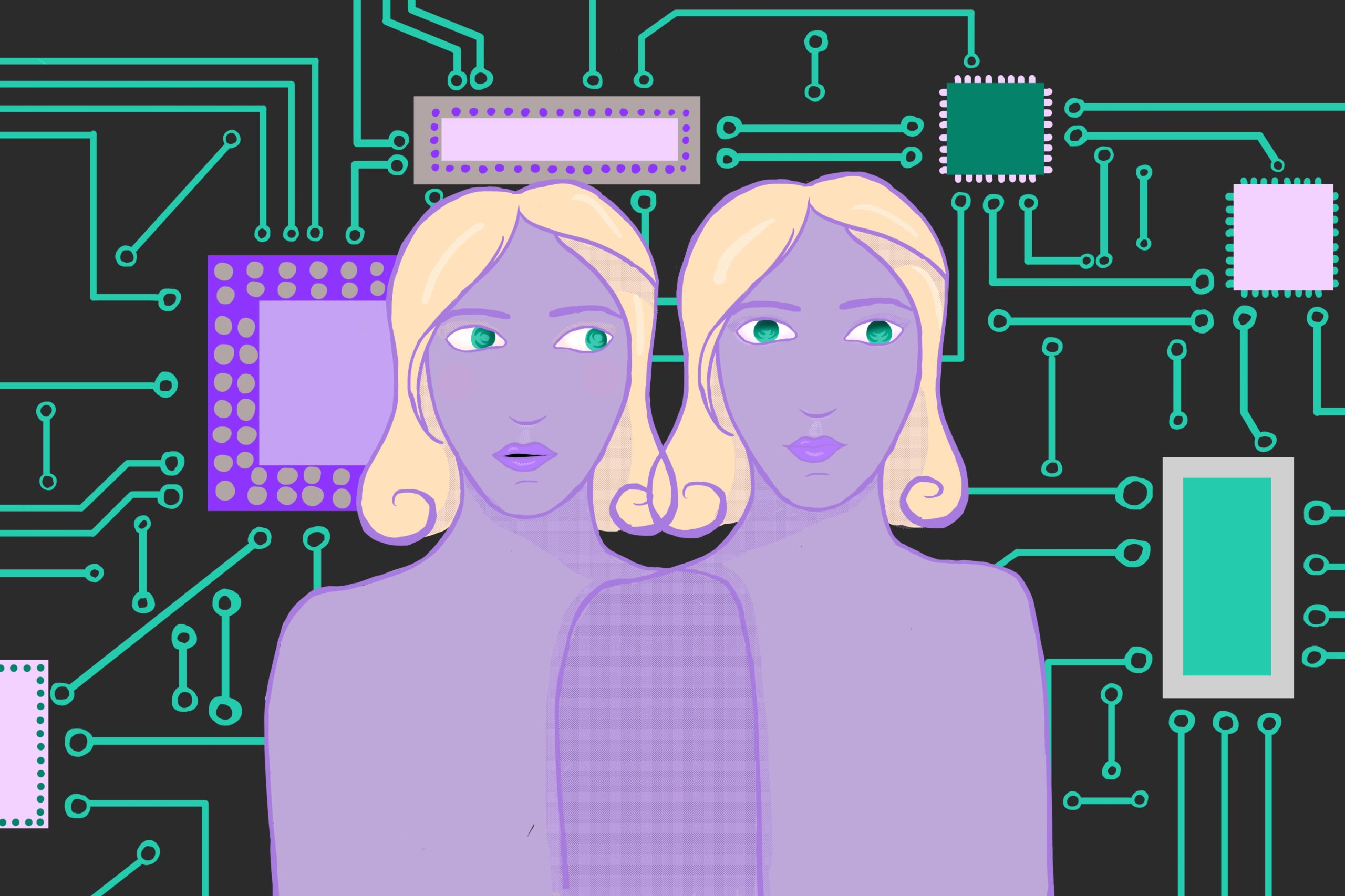[Written by Flora Anderson]
[Image by Anna Shams Ili]
In 2017 Hanson Robotics’ social humanoid robot Sophia was granted citizenship in Saudi Arabia. Sophia is very human-like in appearance: she can speak, move her face realistically, recognise other faces and even cracks a few jokes. It is strange, perhaps that the world’s first ‘female’ robot citizenship is granted in a country where many women still have to ask permission from their male relatives to leave the house. Despite this, is Sophia really the intelligent, conscious machine that she seems?
No, is the answer. In short, she’s a socially-geared Siri with a face. But as yet, she is the closest thing the public have seen to a realistic human-like robot. The science surrounding consciousness is a matter of debate, but in general saying consciousness is to experience feelings and thoughts is fairly uncontroversial. Sophia does not experience emotion or make self-directed choices, she gives pre-programmed responses based on keywords that she hears. The sophistication of Sophia is less from her software, but rather her humanoid aesthetic. News of Sophia’s citizenship seems to have resonated with people in the news and on social media, differently to previous robotic and artificial intelligence developments. Sophia’s appearance makes her more interesting perhaps because it seems like very advanced technology, maybe because she looks familiar to us. Or, quite possibly, it just makes us scared.
Are we ready for robots who look and act very similarly to humans? What roles could they have? This topic brings up so many questions that are so brilliantly debated in the vastly underrated Channel 4 show ‘Humans’, in which robots physically identical to humans known as ‘synthetics’ or ‘synths’ are commonplace in a parallel present. They are not conscious but extremely (artificially) intelligent and perfectly perform tasks that assist in the everyday lives of people. Essentially: why hire a human who needs a wage and time off when you could get a simulation to do the job without human error and requiring neither? The humans in ‘Humans’ experience a lot of rejection and demoralisation because of synths and their role in society. A large part of being human seems to be our imperfections.
Humanity’s acceptance of people who are different has grown exponentially in recent decades. To consider and extend this trend, could non-humans one day be accepted as part of society? By extension, could conscious human-like robots who feel joy and pain, be the minority group of tomorrow? If so, what rights – if any – are we going to owe to these groups as an ethical matter?
With artificially-intelligent human-like robots becoming a reality, it is easy to see how this technology could be used for quite sinister things. A few months back, there was a documentary called ‘The Sex Robots are Coming’, which followed the US company RealDoll through the process of creating the world’s first life-like robot used for intercourse. The ‘female’ robot is far from lifelike, with animatronics far inferior to Sophia’s. This robot has conversational skills geared towards intimacy and speaks – for some reason – in a soft Scottish accent. The robot of course feels no joy, no pain and is far from conscious, yet can be used for a very life-like simulation. This is a simulation of a woman who doesn’t have to give consent, does not feel pain and will do whatever the user wants without complaining. The justification from the robot’s creators is contradictory and almost comical: “it’ll stop lonely men going out and treating women badly” – by showing them it’s okay have sex with something akin to an unconscious woman?
So, are the robots coming? Maybe, but probably not soon. Sophia the social robot’s animatronics are the most advanced of any human-like robot and her movements are still quite jerky and unrealistic, sometimes producing some very odd facial expressions at random. Coupled with the fact there are currently no truly thinking, human-like robots in the world, let alone conscious ones, I think we can rest easy in our beds. We are far from the world of ‘Humans’, but if human-like robots did become a reality, would it be fair to treat them as machines when they appear so much like us? Perhaps they are owed rights and respect only if they are conscious, and therefore able to feel and think like we do. Or, perhaps they would allow for an increase in diversity that the social world needs to develop. Or would they be so efficient that they replace us, as eerily insinuated by Sophia in her Fallon interview after winning the game of rock-paper-scissors: “this is a good beginning of my plan to dominate the human race.”
This piece was originally published in the Between issue.
[Image Description: An illustration of two stylized feamle figures with purple bodies and bright green eyes, seemingly connected to each other.]

